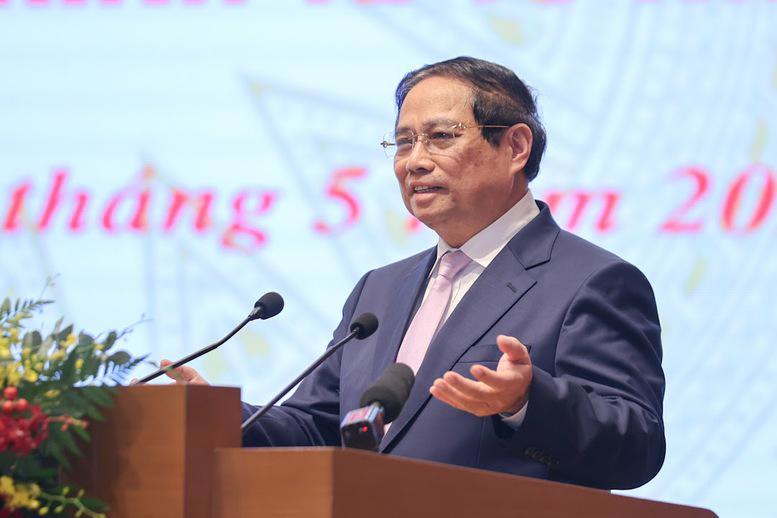Prime Minister Pham Minh Chinh chaired a dialogue with the business community in Hanoi on May 31, during which he asked State management bodies at all levels to answer and resolve all proposals and concerns from enterprises within two weeks.
The dialogue was held to promote the effective implementation of the Politburo’s Resolution No. 68-NQ/TW, the National Assembly’s Resolution No. 198/2025/QH15, and the Government’s Resolutions 138 and 139/NQ-CP, on development of private economy.
The private sector now contributes around 50% of GDP, 56% of total investment capital, more than 30% of the State budget revenue, and nearly 30% of import-export turnover.
At the dialogue, government leaders and localities discussed concrete steps to implement key resolutions. Experts and businesses welcomed the supportive tone and broad scope, calling them a rare opportunity for private sector growth. They were confident the targets could be met ahead of schedule with unified efforts.
The business community urged the Government to streamline laws, cut red tape, coordinate inspections, and ensure fair access to land, capital, labor, and resources. They also called for greater delegation to private firms, especially in emerging sectors.
They also suggested more tax and fee incentives, stronger protection of legal rights and interests, streamlined complaint-handling mechanisms, and prompt resolution of issues arising during implementation.
PM Chinh hailed the candid and constructive input from entrepreneurs, and thanked them for their optimism and willingness to partner with the Government in advancing the country's two centennial goals. He affirmed the target of 8% economic growth in 2025 and double-digit growth in subsequent years.
The PM acknowledged their proposals on simplified procedures, fair access to resources, and clear policy mechanisms to support business development.
He emphasized that State agencies must act as facilitators, focusing on strategy, policy-making, supervision, and post-check.
The Government will continue pursuing the three strategic breakthroughs in institutional reform, infrastructure development, and human resources. It will also ensure sovereignty, political stability, and public order while facilitating business access to land, capital, resources, technology, and skilled labor, and safeguarding property and business rights, according to the Government leader.
He instructed all ministries, agencies, and local authorities to establish mechanisms for regular engagement with businesses, including prompt handling of their requests, ensuring that they are responded within two weeks.
He urged stronger connections among public agencies and the private sector, both through direct engagement and digital platforms. He also asked ministries to continuously review and adjust policies in a timely, flexible, and effective manner to better support businesses.
PM Chinh encouraged the business community to uphold ethical standards, comply with the law, innovate continuously, and invest in smart management and technology.
He called for closer collaboration among private firms, foreign investors, and State-owned enterprises to build domestic and global production, supply, and service chains. He expressed his hope that household businesses will evolve into formal enterprises, small firms into large ones, and large enterprises into multinational corporations.









 Google translate
Google translate